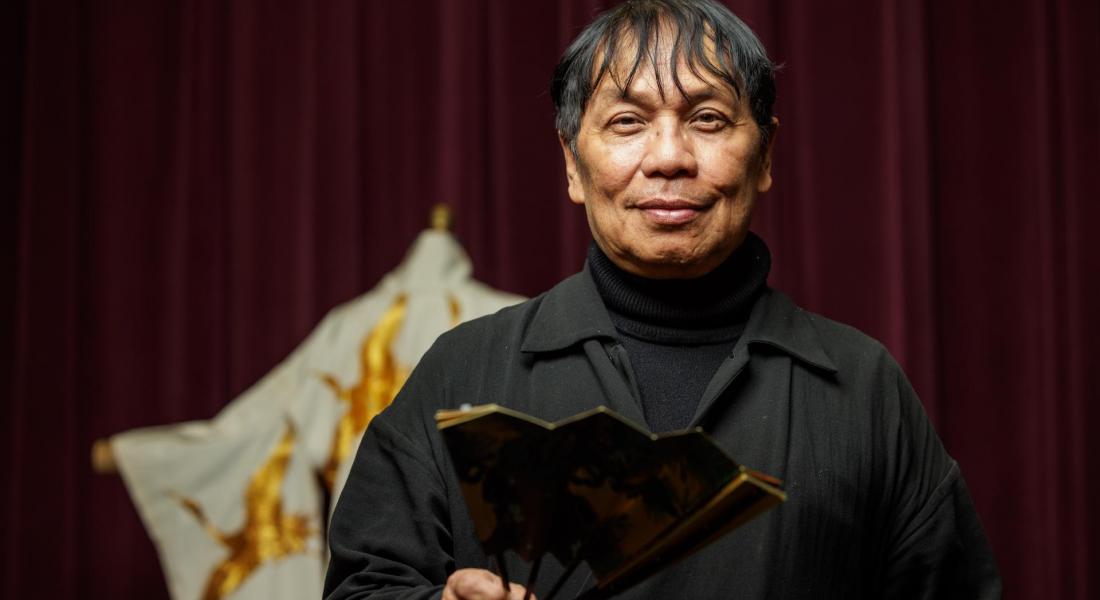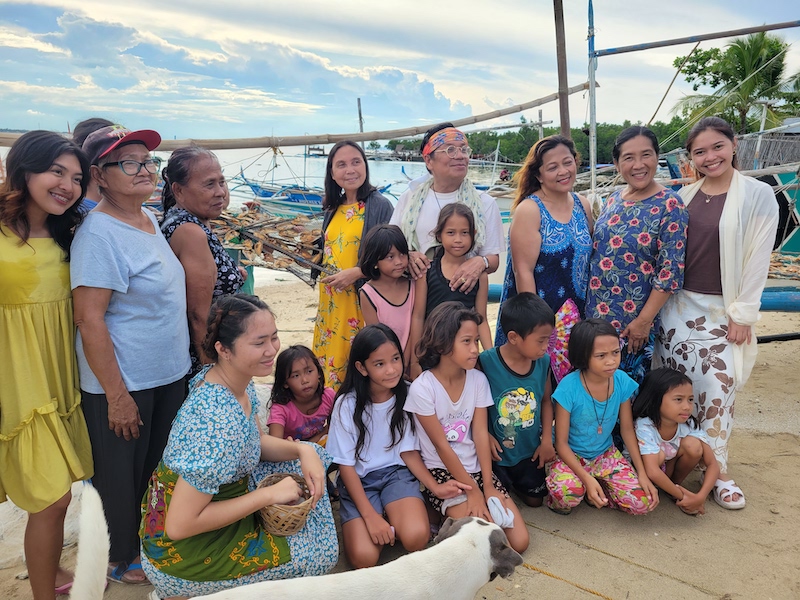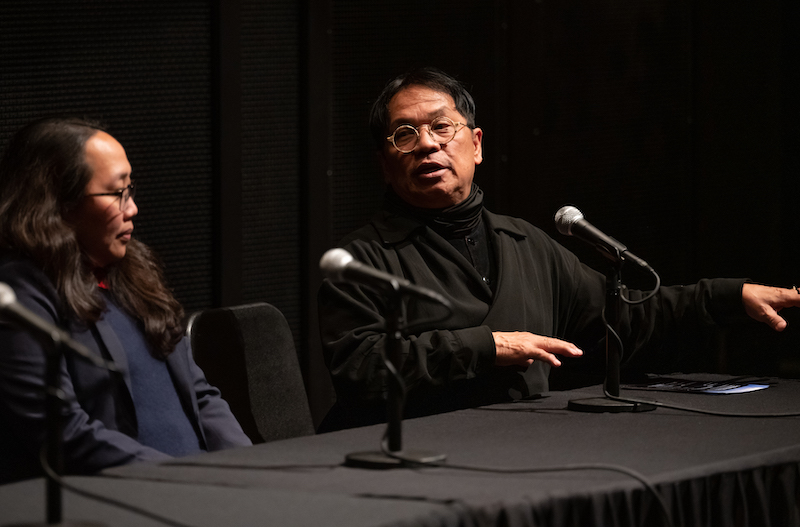
J. Sloat Fassett, the wealthy and well-connected president of the Insular Lumber Company, died in 1924 aboard ship as he returned from a Philippines business trip. Nearly a century later, his real-life legacy delivers a central message in the mystical new Anton Juan film Amon Banwa sa Lawud, or “Our Island of the Mangrove Moons.”
Early in the film, students from the tiny mangrove island of Suyac take a field trip to Plaza Sagay to see an old locomotive that was once an Insular Lumber workhorse. It delivered exotic but now endangered mahogany to global craftsmen, and later fueled the World War II demand for wood from the Philippines.
“It would take more than a hundred years to restore these trees and mountains,” explains the film’s teacher from Suyac, where the movie was shot in spring of 2022. Juan, a Kellogg Faculty Fellow and professor/theatre director at University of Notre Dame’s Department of Film, Television, and Theatre, primarily chose real people living in the fishing village rather than actors to tell their own layered stories.
 Juan, who received a Projects in the Arts grant from the Kellogg Institute, says he began the film’s writing and directorial work alongside co-creator Mark Raymund Garcia, a playwright from Sagay City, by immersing himself into the lives of the community.
Juan, who received a Projects in the Arts grant from the Kellogg Institute, says he began the film’s writing and directorial work alongside co-creator Mark Raymund Garcia, a playwright from Sagay City, by immersing himself into the lives of the community.
“I learned that the mangroves grow toward the direction of the light of the moon, they tell their stories to the moon,” said Juan. The mangroves became a metaphorical framework as the characters of Celia, Delfin, and the others explore themes of environmental and political injustice through the ordinary details of their lives, all within a narrative framework that reinterprets Thornton Wilder’s “Our Town.”
“No island or people should ever be forgotten,” explains Juan, who will retire at year’s end from a career at Notre Dame that he says is committed to speaking truth to power through social justice themes. He’ll continue on as chief director for culture and the arts with the Erehwon Center for the Arts based in Quezon City, lecture at the University of the Philippines, and, among other things, serve as a board member of the Switzerland-based International Playwrights’ Forum of the International Theatre Institute (UNESCO).
“I think I would like to finish my novel,” adds Juan, who’s working on the third chapter. “It is all about how nobody remembers anything but the cement in a country where cement has covered everything and is the tool of authority.”
 As with RD3RD, his award-winning Woven Wings of Our Children, and Juan’s other works, he intends to continue pursuing themes centered on migration and cultural loss, or the colonialism and erasure that are at the heart of the little fishing village’s quest to protect its identity in Amon Banwa sa Lawud.
As with RD3RD, his award-winning Woven Wings of Our Children, and Juan’s other works, he intends to continue pursuing themes centered on migration and cultural loss, or the colonialism and erasure that are at the heart of the little fishing village’s quest to protect its identity in Amon Banwa sa Lawud.
Environmental justice and climate change remain key themes, and the mangroves serve as more than a metaphor. The mangroves on Suyac Island, as in other parts of the world, provide a natural buffer against storms, floods, and rising seas as they grow at the water’s edge. Yet in another “meta” turn, even as Juan filmed with island native Garcia – one of his former students – their “Our Town” village had to be evacuated because of the wind and flooding driven by Tropical Storm Megi.
Juan’s also clear-eyed about geopolitical threats and the future of the island, which is threatened by pirates in the film in a tragic sequence that leads to a permanent loss of both the past and the future. With Beijing asserting regional power and extending its territory on islands of the South China Sea, the Amon Banwa sa Lawod director presents the symbolic threat of conflict, the erasure of history and culture, and the losses due to resource extraction and economic exploitation.
“It’s not only what's happening now but what has happened in the past,” he says.
As the Insular Lumber railroad of long ago returns in the end, Juan asks his audience to remember the century-old legacy as a cautionary tale, raising his questions about the future of the island people and whether their ways of life can be protected.
“I hope that the film turns our attention to a very important area in the world right now,” Juan said. “At the same time, I hope it is not a prophecy.”
The Kellogg Institute for International Studies, part of the Keough School of Global Affairs at the University of Notre Dame, is an interdisciplinary community of scholars and students from across the University and around the globe that promotes research, provides educational opportunities, and builds partnerships throughout the world on the themes of global democracy and integral human development.





